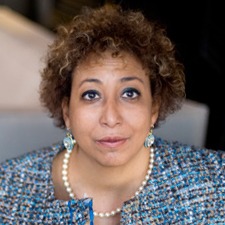
Kendra Hamilton , Ph.D.
Associate Professor of English
Department of English
Email Dr. Hamilton864-833-8340
Dr. Hamilton – Curriculum Vitae »
Education Background
Ph.D., English and American Studies, University of Virginia
MFA, Poetry, Louisiana State University
AB, English, Duke University
Research Fields/ Areas of Specialty/Teaching
- African American literature
- American identities
- Composition and Creative Writing
- Gender studies
- Genre studies, especially modern and contemporary poetry
- The “global South”
- Introduction to Southern Studies
- Literary “geographies”
- Transatlantic modernism
About Dr. Hamilton
Joined PC in 2014
Cats; cooking; digital humanities; folklore and oral history; gardening; meditation, yoga, and contemplative practice; the natural world and nature writing; singing and Southern music generally-blues, folk, and jazz, and spirituals in particular; small-scale sustainable farming practices and stewardship of land for future generations.
I could never be accused of being an “ivory tower scholar.” Sure, I love the library as much as any English professor—I love research and long periods of time devoted to writing and study. But I’ve also consciously chosen to balance those periods of introspection with active engagement in every community I’ve joined—up to and including being drafted by my neighbors to run for City Council and serving two years as Vice Mayor of Charlottesville.
After (thankfully) retiring from politics in 2007, I combined my commitment to service with my great love—gardening—and, along with my partner and the team of dedicated volunteers we attracted, I co-founded and administered not one but two church-based community gardening/hunger ministries. (The first “grew” its own neighborhood-based leadership and is operating independently; the second just achieved an impressive fund-raising milestone and is about to open a community canning kitchen.)
I love the warmth and humor of the faculty members at PC—and the excitement they seem to bring to their jobs. I’ve also met a few student leaders and come away quite impressed at how open, bright, and intellectually curious they are. As for what I hope we can accomplish together, I hope I may be forgiven for turning to a Thomas Jefferson quote. (No one who lives more than a few years in Virginia escapes without a few choice Jefferson quotes, as my students will no doubt learn!) Writing to his friend and legal mentor George Wythe while he was working on the revision of the Virginia code of laws, he said:
I think by far the most important bill in our whole code is that for the diffusion of knowledge among the people. No other sure foundation can be devised, for the preservation of freedom and happiness … Preach, my dear Sir, a crusade against ignorance; establish & improve the law for educating the common people. Let our countrymen know that the people alone can protect us against these evils [tyranny, oppression, etc.] and that the tax which will be paid for this purpose is not more than the thousandth part of what will be paid to kings, priests and nobles who will rise up among us if we leave the people in ignorance.
Jefferson was steadfast in the belief that liberal education in the humanities is the bedrock of an informed and active citizenry, one prepared to assume leadership in society. With Jefferson, I put my faith in liberal education—for its ability to make students aware of their cultural birthright, to awaken them to their social and civic responsibilities, and to encourage them to seek the common good.
And hopefully, there will be gardening, too.
